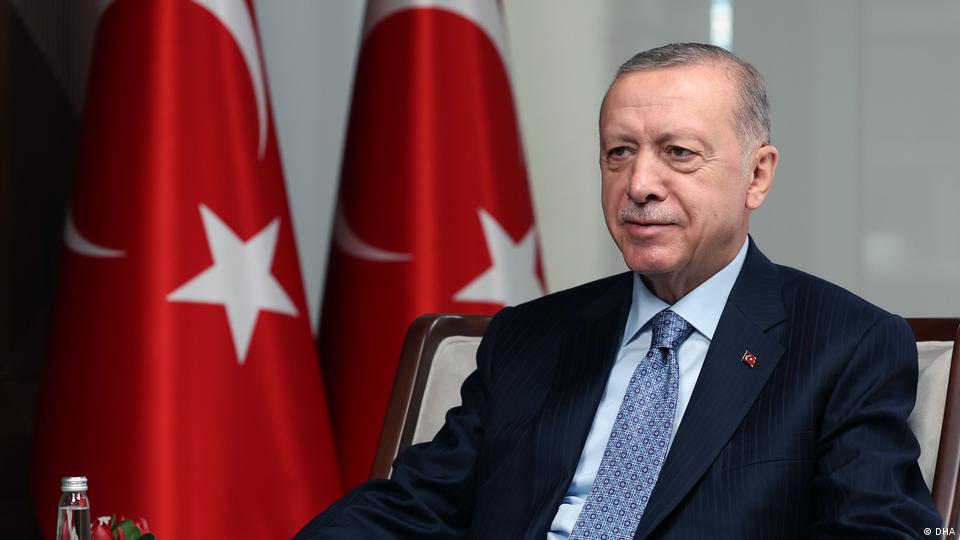President Recep Tayyip Erdoğan has argued that Turkey’s annual inflation, which climbed to a 24-year high of 80.21 percent in August according to official data, isn’t an “insurmountable” economic threat, local media reported on Tuesday.
Erdoğan’s remarks came in an interview with PBS in New York on Monday during his visit to the US to attend the 77th United Nations General Assembly, according to a transcript of the entire interview published in Turkish by Turkey’s Presidential Communications Directorate.
When asked how to solve the issue of record-high inflation in Turkey, the president said, “Inflation is not an insurmountable economic threat. I am an economist,” according to the Presidential Communications Directorate’s transcript, despite the fact that Erdoğan doesn’t have a degree in economics.
The PBS transcript did not include this question and answer, although it didn’t indicate that part of the interview had been omitted.
Erdoğan said that while there are countries in the world that are “threatened” by annual inflation of 8 or 9 percent, Turkey has achieved exports worth $250 billion despite annual inflation of over 80 percent.
“The market shelves aren’t empty in my country. But today, the shelves are empty even in the US, France and Germany. My citizens can now find all kinds of products they want in the markets,” Erdoğan said, adding that products are currently sold at lower prices in grocery stores run by the Agricultural Credit Cooperatives of Turkey than in other chain grocery stores.
Erdoğan and his Justice and Development Party (AKP) government hold supermarkets responsible for the high prices for consumer goods, and investigations have been launched into some supermarket chains for allegedly exploitative pricing.
However, economists say not supermarket chains but poor economy management is the cause of the high inflation in Turkey and that opening new supermarkets like those run by agricultural cooperatives will not cure the problem but will instead deepen it.
“Inflation is a problem for us at the moment, but we will overcome this problem … after the new year and continue on our way with determination. Currently, Turkey’s [economic] growth rate is at 7.6 percent. We are second in the world in growth and that shows something,” Erdoğan added.
Inflation has soared since last autumn, when the lira slumped after the central bank gradually cut its policy rate by 500 basis points to 14 percent in an unorthodox easing cycle sought by Erdoğan.
Despite expectations that inflation will not fall in the next few months, the bank lowered its key rate by another 100 basis points last month to 13 percent, citing indications of an economic slowdown.
The economic fallout from Russia’s invasion of Ukraine has also stoked inflation this year, as well the lira’s continued decline. The currency shed 44 percent against the dollar last year, and is down more than 27 percent this year.
The AKP government has said inflation will fall with its economic program prioritizing low rates to boost production and exports with the aim of achieving a current account surplus.
According to government forecasts released earlier this month, Turkey expects inflation to ease to 65 percent by yearend.
Polls show Turks believe inflation is far higher than official data.
The Turkish Statistical Institute (TurkStat) has been receiving growing criticism from opposition parties and government skeptics for not releasing accurate figures for important statistics such as inflation and unemployment, instead presenting statistics that fail to reflect the market realities. The institute is accused of manipulating the numbers in order to mask the scale of the country’s economic deterioration.
Over the past several years, Turkey has been suffering from backsliding in its economy, with high inflation and unemployment as well as a poor human rights record. Erdoğan is criticized for mishandling the economy, emptying the state’s coffers and establishing one-man rule in the country where dissent is suppressed and opponents are jailed on politically motivated charges.


